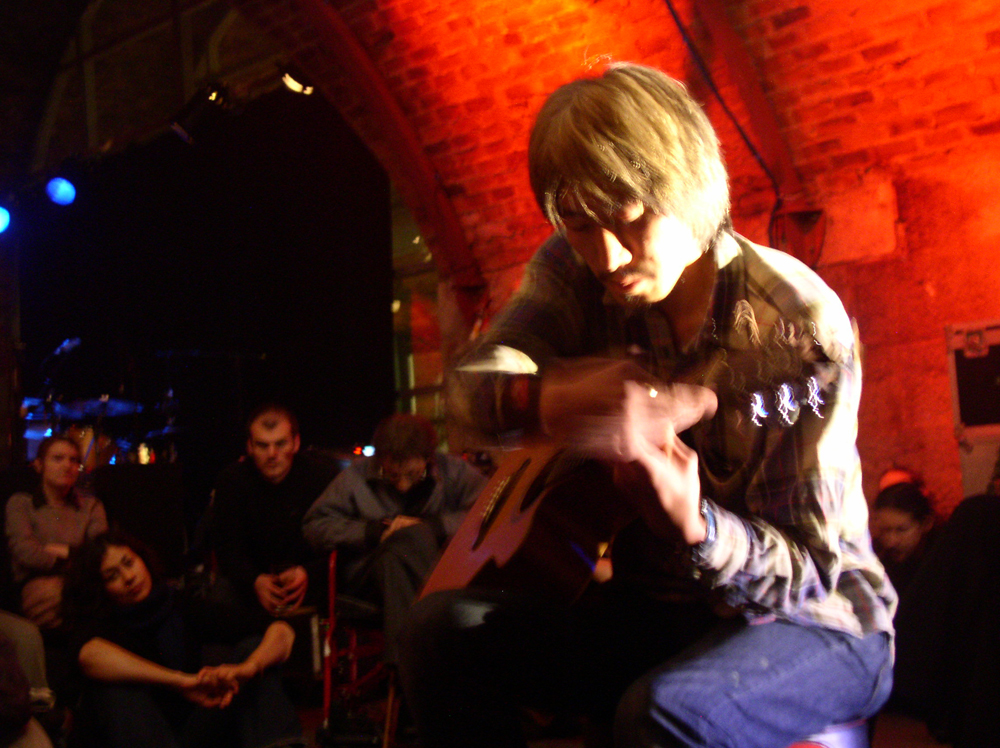
Tetuzi Akiyama
Tetuzi Akiyama
An contradictory guitarist, he’s equally at home in slow, halting acoustic improvisation or piercing minimal examinations of electric guitar.
Arika have been creating events since 2001. The Archive is space to share the documentation of our work, over 600 events from the past 20 years. Browse the archive by event, artists and collections, explore using theme pairs, or use the index for a comprehensive overview.

An contradictory guitarist, he’s equally at home in slow, halting acoustic improvisation or piercing minimal examinations of electric guitar.

By focusing on the things that most people don’t notice or pass by uncaring – Steve Roden crafts gentle, sparse and metaphorically loaded compositions.

Formed as a means to realise William Bennett’s goal of “a sound that could bludgeon an audience into submission”
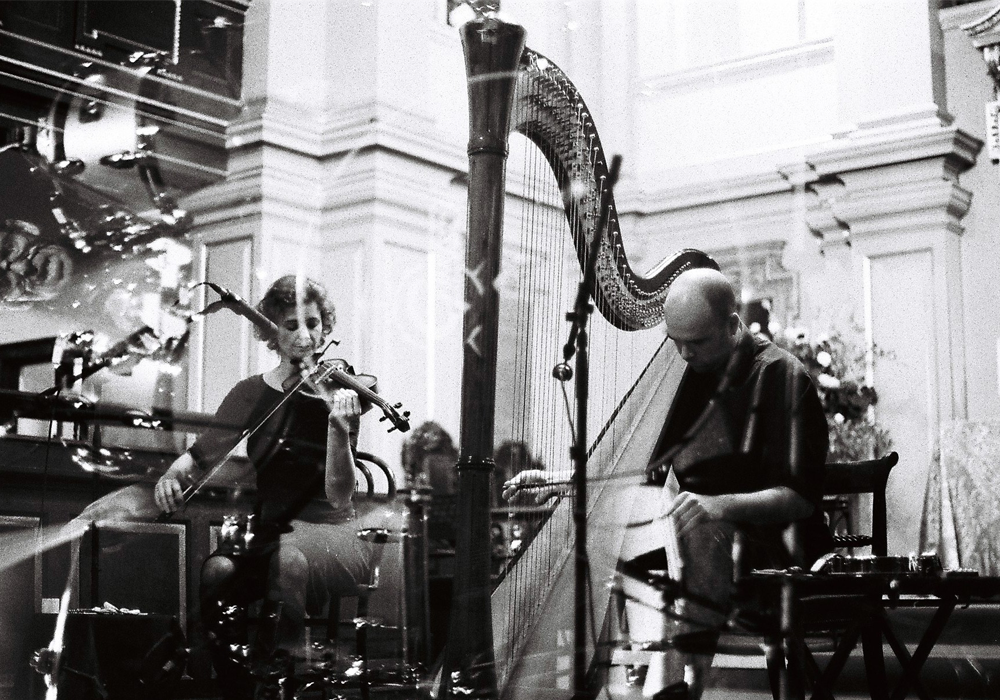
Performances at St Giles in the Fields, London by Jandek, Rhodri Davies & Angharad Davies, Rauhan Orkesteri.

This set continues on from the Bud Neill inspired clatter using the contents of the Usurper twin’s pockets.

A historical narrative of the black and latino/a transgender, bisexual, lesbian, and gay House and Ballroom Scene in relation to its artistic practices.

The role of feelings in public life, (political) depression and creative survival.
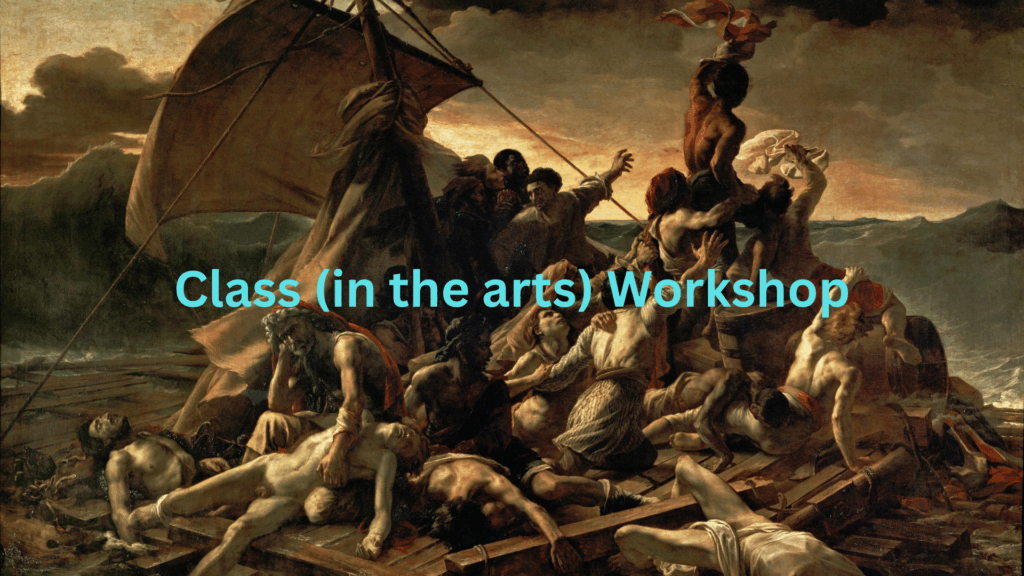
A 2-day workshop to deconstruct our classed experiences and the ways in which we reproduce the same class system we fight against, in order to create a stronger, more egalitarian Scottish art sector.
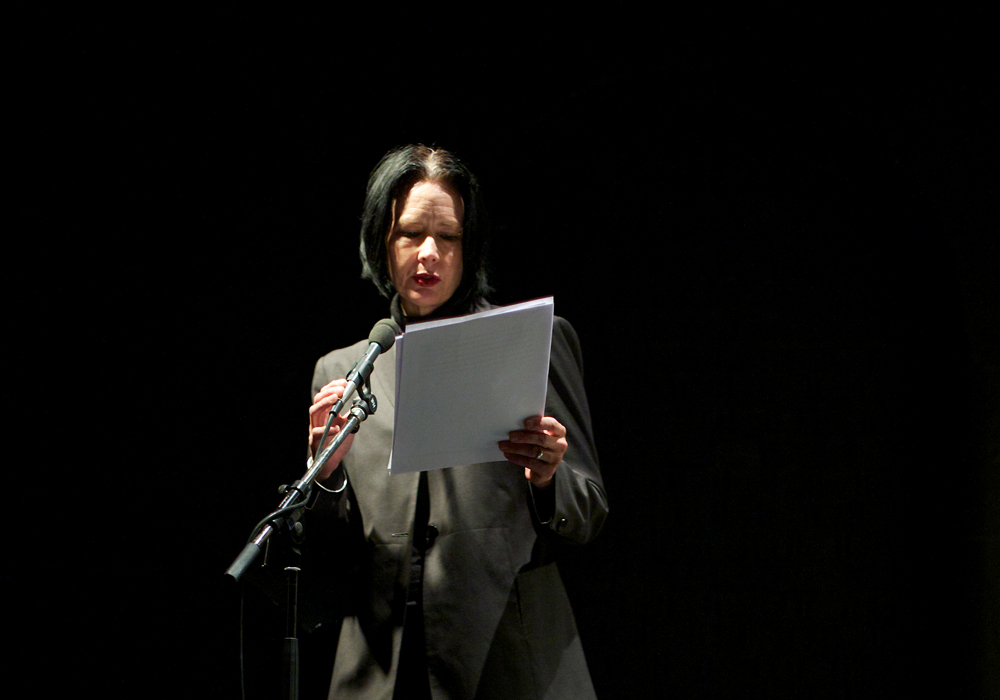
Vanessa Place talks at The Friday Event series at the Glasgow School of Art about her practice as a writer.
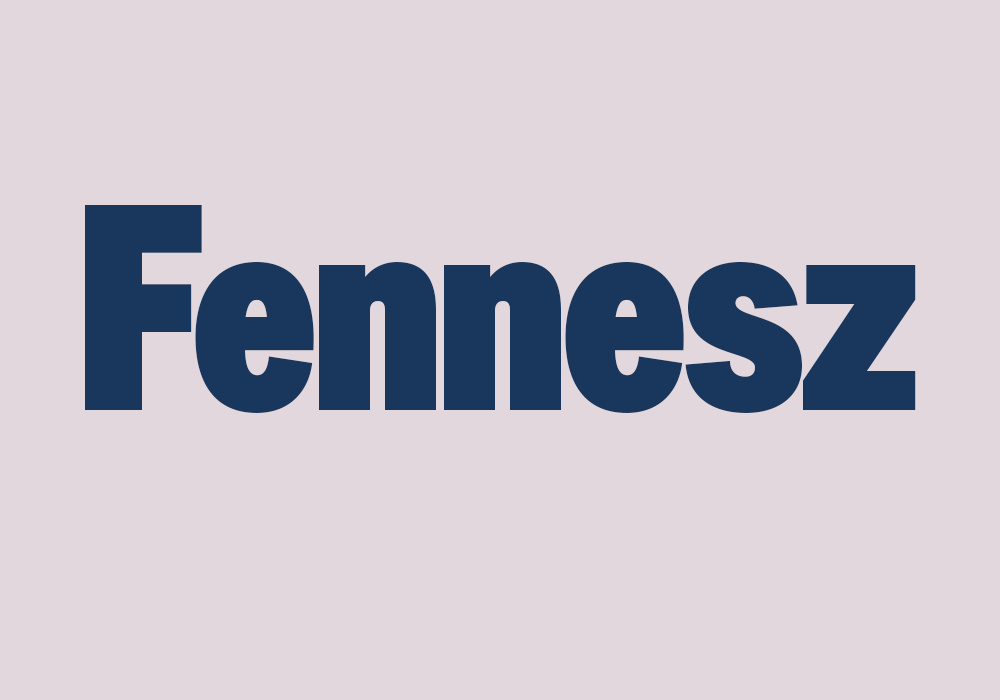
Austrian guitarist who specialises in a warm digital deconstruction of guitar noise

Individual experience separated by physical boundaries (of space, time or ability) suggested as communities of collective experience by (perhaps voyeuristic) artists.

To Rococo Rot member Robert Lippok performing for the first time in the UK with his solo project.